Bid Confidently, Win Consistently – Zip Code Estimates Made Easy!
- Accurancy
- Efficiency
- Transparency
- Customization
- Time Saving
- Professionalism
- Cost Control
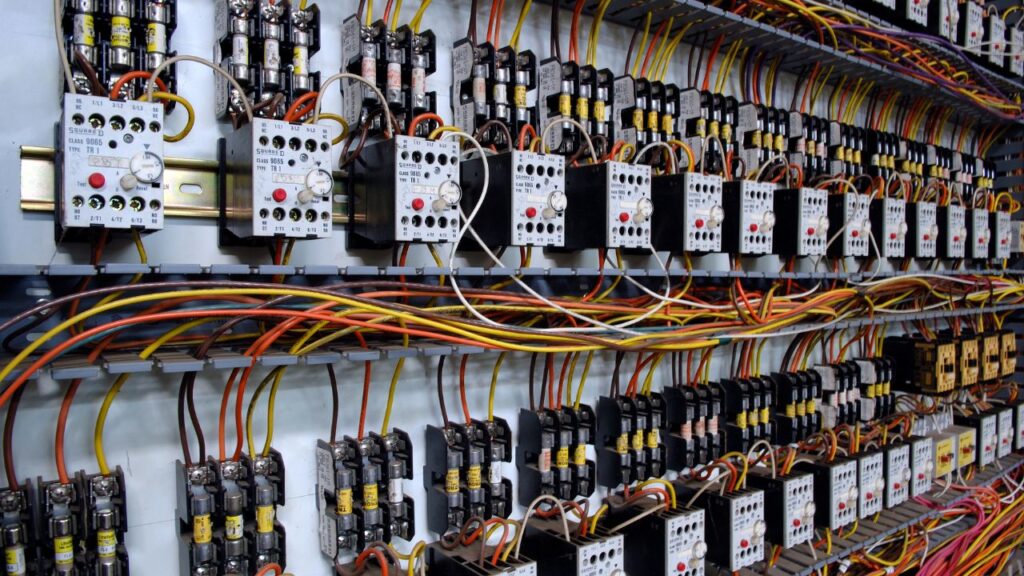
Considering rewiring your 2,800 sq ft home in 2025 but worried about the cost? Rewiring costs can range from $5 to $17 per square foot, meaning you might spend between $14,000 and $47,600. This variance depends on your home’s age, regional labor rates, and project complexity. Final expenses, including permit fees and electrical upgrades, could reach $12,500 to $55,500. It’s crucial to choose the right electrician and explore ways to minimize costs. This guide will help you navigate budgeting, planning, and understanding the rewiring process, ensuring you make informed decisions for this vital home improvement project.
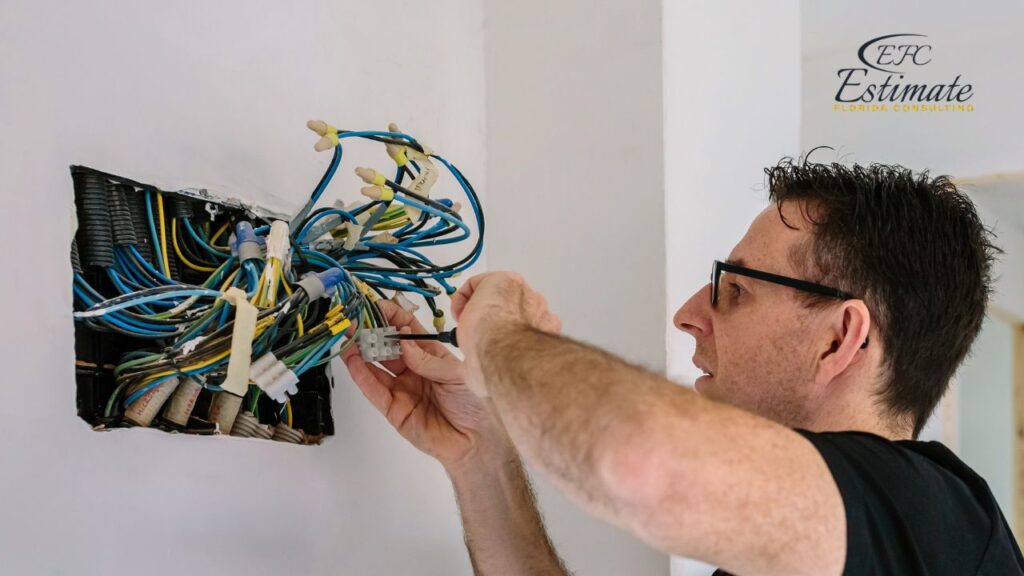
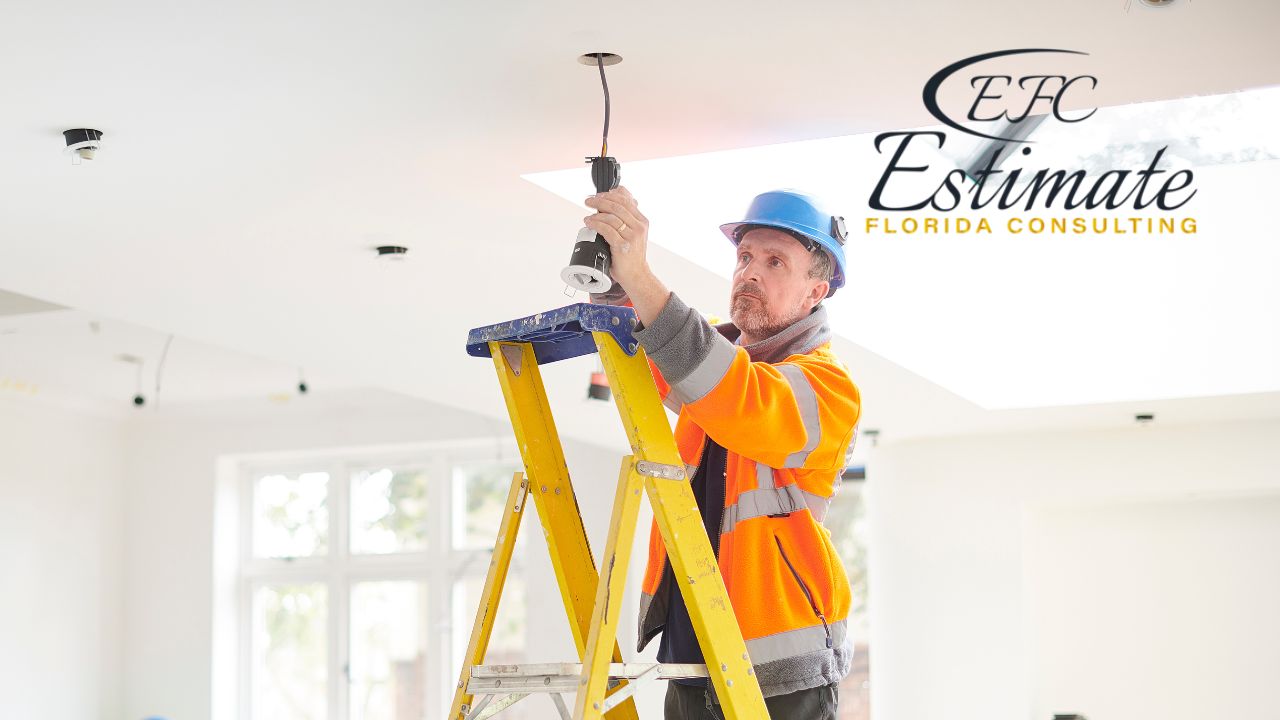
Fully Insured License
Hire Contractor For Electrical Rewiring
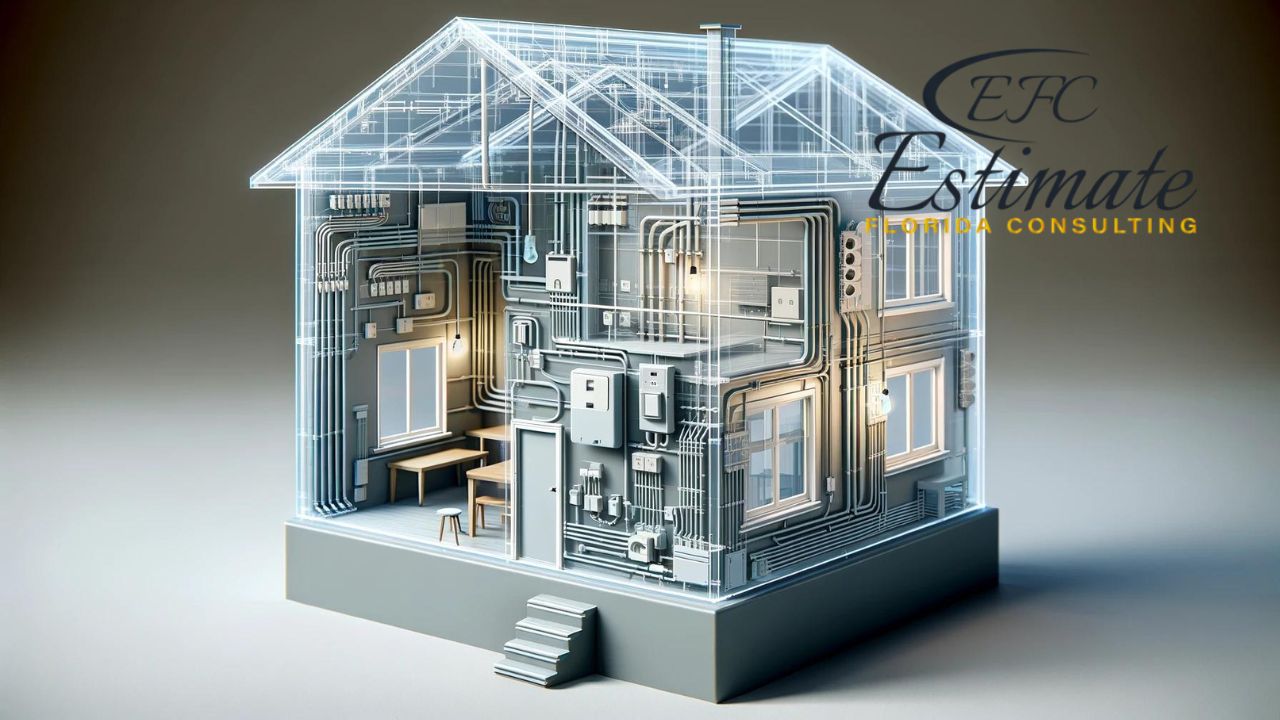
Make Informed Design Decisions Showcase Your Design Ideas
Get RenderingRewiring is essential to address potential electrical hazards, ensure compliance with safety standards, and implement necessary upgrades to enhance the overall safety and efficiency of the electrical system.
Outdated wiring poses significant risks such as electrical fires, shocks, and malfunctions, which can endanger lives and cause extensive property damage. By upgrading the electrical system, you reduce the chances of short circuits, overloads, and other dangerous incidents.
Prioritizing electrical safety not only protects your home or business but also provides peace of mind knowing that your electrical infrastructure is up to date and functioning at its best. Modernizing the system can lead to energy efficiency, cost savings, and increased property value, making it a wise investment for the long term.
Let’s include more specific numerical estimates in the cost table for each factor affecting the rewiring of a 2800 sq ft home in 2025:
| Factor | Description and Impact | Estimated Cost Details |
|---|---|---|
| Size of the Home (2800 sq ft) | Overall scope of rewiring based on house size. | $14,000 (at $5/sq ft) to $47,600 (at $17/sq ft) |
| Age of the Home | Older homes may require more work. | Up to 20% more on base cost, $2,800 – $9,520 additional |
| Type of Wiring Needed | Quality of materials impacts cost. | Premium materials add 25-35%, up to $16,660 extra at maximum |
| Accessibility of Wiring | Hard-to-reach areas increase labor cost. | Additional 15-25% on labor, up to $11,900 extra at maximum |
| Location of the Home | Regional differences in labor rates and permits. | 10-30% variation due to location, up to $14,280 extra at maximum |
| Cost Per Outlet | Number and type of outlets. | $50 – $120 per outlet, for 50 outlets, $2,500 – $6,000 total |
| Electrical Panel Upgrade | Necessary for outdated panels. | Typically $1,200 – $2,500 per panel |
The size of the home, typically measured in square footage, plays a significant role in determining the extent of rewiring required, the complexity of the wiring layout, and the number of electrical components that need to be upgraded or installed.
Larger properties often present challenges during the rewiring process due to the increased distance that wiring must cover, requiring more materials and labor. In these cases, the layout of the existing wiring becomes crucial to assess how best to integrate new components. Factors like the age of the property and the type of electrical system can impact the overall cost of rewiring.

It’s important to consider the variety of electrical components, such as outlets, switches, and circuit breakers, as each plays a role in determining the final budget for the project.
The age of the home is a crucial factor in determining the necessity of rewiring, as older properties may have outdated electrical systems, deteriorating infrastructure, and inadequate wiring diagrams that require upgrades for safety and efficiency.
Homes that were built several decades ago often have electrical systems that may not meet current safety standards, posing various risks such as electrical fires or shocks. The lifespan of electrical systems typically ranges from 25 to 40 years, meaning that older homes are more likely to experience issues related to wear and tear. Outdated infrastructure, including old wiring materials like knob-and-tube wiring, can lead to electrical failures and pose a hazard to the occupants. Having accurate wiring diagrams is crucial for electricians to understand the layout of the electrical system and make informed decisions during rewiring projects.
The type of wiring needed for rewiring projects, including considerations such as wire gauge, proper electrical connections, and adherence to established electrical standards, significantly influences the overall cost and effectiveness of the electrical system.
Selecting the right wire gauge is crucial as it determines the amount of electrical current that can safely flow through the wiring without overheating. Proper wiring connections are vital to ensure optimal electrical flow and prevent potential hazards like short circuits or electrical fires. Compliance with electrical standards is not only a legal requirement but also essential for the safety and longevity of the electrical system. By prioritizing these factors, individuals can enhance the efficiency and reliability of their rewiring projects.

The accessibility of existing wiring, adherence to electrical codes, compliance with regulations, and the scope of required electrical work all impact the cost and feasibility of rewiring a home.
When considering a rewiring project, it’s essential to assess how easily the existing wiring can be reached and modified without major renovations. Accessibility plays a crucial role in determining the complexity and duration of the project. Ensuring that the work aligns with electrical codes is paramount for safety and legal reasons. Non-compliance can lead to hazards and complications down the line, making it crucial to follow the stipulated regulations.
Understanding the scope of electrical work needed enables homeowners to plan and budget effectively for the rewiring process, avoiding unexpected surprises and delays.
The location of the home influences the cost of rewiring due to variations in electrical permit regulations, voltage requirements, the number of required electrical outlets, and other regional factors that impact the overall project expenses.
For instance, in some regions, obtaining electrical permits for rewiring projects may be more stringent, leading to increased costs and potential delays. Voltage requirements can differ based on geographical locations, affecting the choice of electrical materials and equipment needed for the rewiring. When it comes to outlet placement, varying building codes and safety standards across different areas can influence the number and positioning of outlets, adding complexity to the rewiring process. Taking these location-specific factors into account is crucial for accurate budgeting and successful completion of a home rewiring project.
Let’s include more specific numerical estimates in the cost table for each factor affecting the rewiring of a 2800 sq ft home in 2025:
| Factor | Description and Impact | Estimated Cost Details |
|---|---|---|
| Size of the Home (2800 sq ft) | Overall scope of rewiring based on house size. | $14,000 (at $5/sq ft) to $47,600 (at $17/sq ft) |
| Age of the Home | Older homes may require more work. | Up to 20% more on base cost, $2,800 – $9,520 additional |
| Type of Wiring Needed | Quality of materials impacts cost. | Premium materials add 25-35%, up to $16,660 extra at maximum |
| Accessibility of Wiring | Hard-to-reach areas increase labor cost. | Additional 15-25% on labor, up to $11,900 extra at maximum |
| Location of the Home | Regional differences in labor rates and permits. | 10-30% variation due to location, up to $14,280 extra at maximum |
| Cost Per Outlet | Number and type of outlets. | $50 – $120 per outlet, for 50 outlets, $2,500 – $6,000 total |
| Electrical Panel Upgrade | Necessary for outdated panels. | Typically $1,200 – $2,500 per panel |
From small to large projects, residential to commercial, we’re here to help you win. Fast results guaranteed.
The cost per light fixture includes expenses related to installing, connecting, and upgrading lighting fixtures as part of the rewiring process, ensuring proper illumination and enhancing the aesthetic appeal of the property.
These costs vary depending on the type and complexity of the fixtures selected. Opting for high-quality fixtures not only improves the overall lighting quality but also enhances energy efficiency, reducing long-term operating costs.
Properly installed lighting fixtures are crucial not only for functional purposes but also to create ambiance and highlight architectural features. Well-chosen fixtures can transform a space, providing both practical illumination and adding a touch of style to any room. It is essential to strike a balance between cost and quality to achieve the desired lighting outcome.
The cost per hour of labor represents a significant component of the overall rewiring expenses, covering the costs associated with electrical labor, repairs, maintenance, and the implementation of necessary electrical upgrades.
Skilled professionals play a vital role in ensuring that rewiring projects are completed efficiently and according to safety standards. Tasks involved in electrical labor include inspecting current wiring, routing new electrical wires, installing outlets and switches, and connecting electrical fixtures. Repair and maintenance expenses must also be factored in to maintain the electrical system’s integrity. Hiring experienced electricians for these tasks can prevent costly mistakes and ensure that the rewiring process is done correctly the first time, saving both time and money in the long run.
In addition to the core rewiring expenses, there are several additional costs involved in the process, such as permit fees, electrical permit requirements, and other supplementary charges that contribute to the overall project budget.
Permit fees are crucial components of a rewiring project, as they cover the costs associated with obtaining necessary permissions to carry out electrical work. These fees vary depending on the location and can add up significantly.
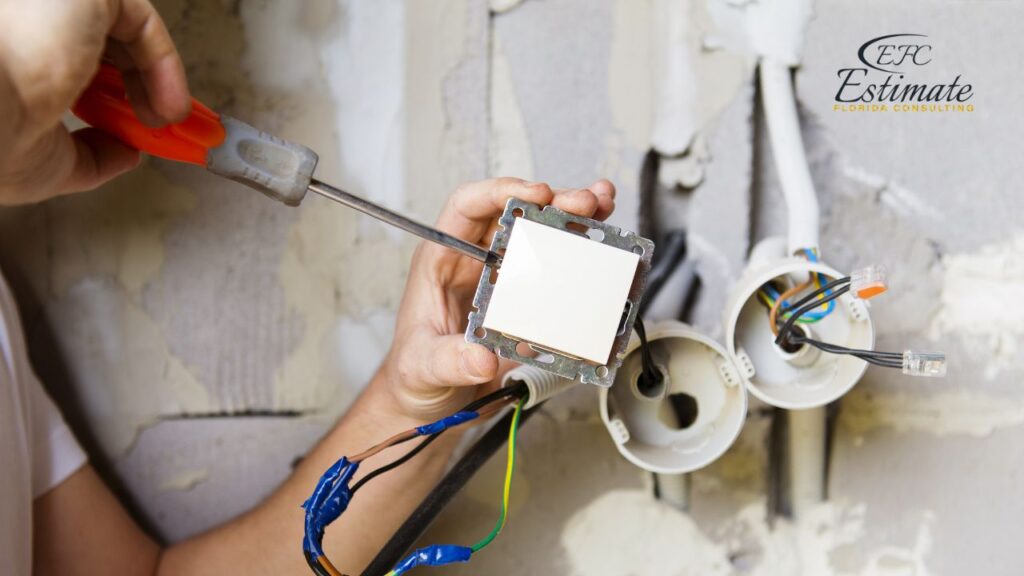
When it comes to regulatory requirements for electrical permits, adherence to building codes and safety standards is paramount. Failure to comply with these regulations can result in fines or the halting of the project.
Additional charges like inspection fees and potential upgrades to meet code standards must also be factored into the total cost, making careful budgeting essential for a successful rewiring endeavor.
Permit fees are essential components of the rewiring process, ensuring compliance with electrical safety regulations, mitigating potential hazards, and providing oversight for the electrical work being conducted.
These fees play a crucial role in maintaining the integrity of electrical systems by funding inspections, evaluations, and monitoring of rewiring projects. By requiring permits, authorities can verify that the work meets safety standards and is carried out by licensed professionals, reducing the risks of faulty installations and electrical failures.
Non-compliance with permit regulations can lead to serious consequences, including electrical fires, electrocution, or property damage. Therefore, regulatory oversight supported by permit fees is instrumental in safeguarding both individuals and properties from the dangers of inadequate electrical work.
An electrical panel upgrade is often necessary during rewiring projects to accommodate modern electrical systems, ensure proper circuit breaker functionality, and enhance the overall safety and reliability of the electrical infrastructure.
This upgrade involves replacing an older, potentially obsolete panel with a new one that can handle the increased electrical demands of contemporary appliances and devices. By meeting the circuit breaker requirements set by updated safety standards, homeowners can mitigate the risk of electrical fires and electrical overloads. These upgrades offer peace of mind, as they ensure a more stable electrical supply and reduce the likelihood of power outages due to overloaded circuits. Prioritizing electrical panel upgrades in rewiring initiatives is crucial for maintaining a safe and efficient electrical system.
Removing old wiring is a critical step in the rewiring process, enhancing the reliability of the electrical system, mitigating potential hazards, and creating space for new, efficient wiring installations.
Old wiring, if left in place during a rewiring project, can lead to several issues such as deterioration, wear and tear, or outdated components, which may compromise the overall safety and functionality of the electrical system.
By removing outdated wiring and replacing it with modern materials that comply with current electrical codes, homeowners can ensure a more secure and efficient power supply throughout their property. This proactive approach not only reduces the risk of electrical fires and accidents but also enhances the performance and longevity of electrical devices and appliances connected to the system.
Repairing walls and ceilings is often necessary during rewiring projects to ensure the integrity of the electrical infrastructure, address any damages or alterations required for wiring installations, and maintain the aesthetic appeal of the property.
These repairs are crucial as they help create a safe environment by fixing any compromised areas that could pose electrical hazards. Addressing the walls and ceilings ensures that the new wiring installations are properly secured and insulated, enhancing the overall efficiency and performance of the electrical system.
From patching up holes to smoothing out surfaces, the repairs play a vital role in preserving the structural integrity of the property while also enhancing its visual appeal. Regular maintenance further helps in preventing any future issues and ensures a well-kept appearance.
The duration of a rewiring project varies based on factors such as the size of the home, the complexity of the electrical system, and the desired enhancements to improve efficiency and functionality.
Efficiency upgrades like installing energy-efficient lighting and smart home technologies can add complexity to the project, potentially extending the timeline. The availability of materials and skilled electricians can impact the speed of completion. It’s crucial to plan the project timeline carefully to ensure that the electrical system is upgraded efficiently and in a timely manner.
Delays in completion can disrupt daily life and pose safety risks, underlining the importance of adhering to the established schedule for rewiring projects.
While DIY rewiring may seem cost-effective, it is crucial to consider the complexity of electrical work, the need for specialized expertise, and the risks associated with handling electrical components without proper training or qualifications.
Attempting electrical work without the necessary knowledge and skills could lead to serious safety hazards, such as electrical shocks, fire hazards, or even fatal accidents. Improperly executed rewiring can result in poor electrical connections, leading to malfunctioning appliances or potential damage to the entire electrical system.
It’s essential to recognize that licensed electricians undergo extensive training to ensure they have a deep understanding of electrical systems and safety protocols. Investing in professional expertise not only guarantees a job well done but also prioritizes the safety and well-being of individuals and properties.
Absolutely! Let’s expand on each of these key points for choosing Estimate Florida Consulting for your electrician services:
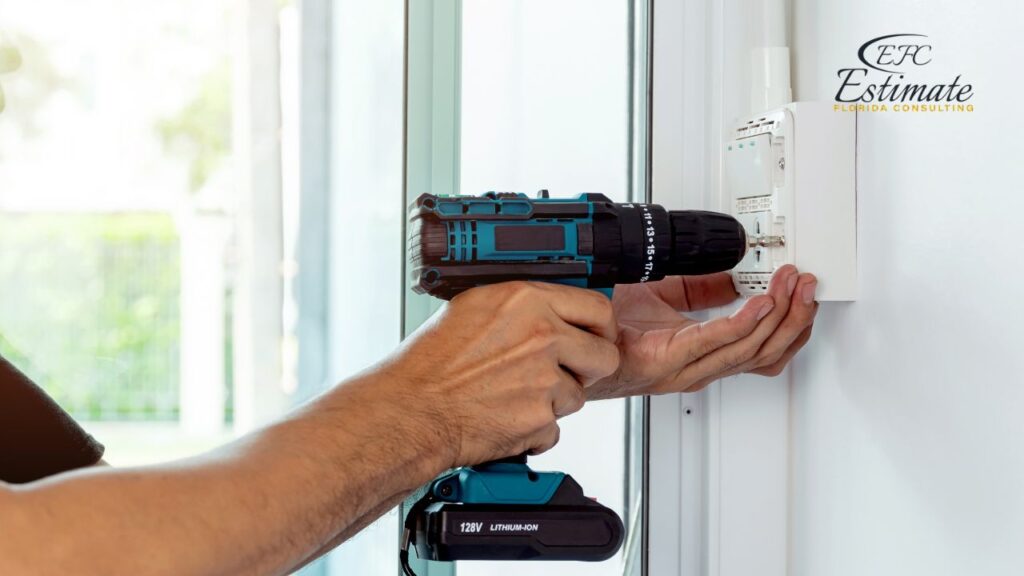
By thoroughly assessing these areas, you can make a well-informed decision about hiring Estimate Florida Consulting for your electrician services, ensuring that your project is handled by capable and professional hands.
Reducing the cost of rewiring can be achieved by setting a budget, exploring options for cost-effective electrical upgrades, comparing services from different providers, and negotiating pricing to ensure a balance between quality and affordability.
When implementing strategies to minimize rewiring expenses, it is essential to conduct thorough research on various electrical upgrade alternatives available in the market. By considering alternative solutions, such as replacing outdated fixtures with energy-efficient options or utilizing smart home technology, homeowners can make significant cost savings.
Seeking quotes from multiple service providers and comparing their offerings can provide valuable insights into the market rates and help in negotiating competitive prices. It’s crucial to strike a balance between quality and affordability to ensure the longevity and efficiency of the electrical system without overspending.
From small to large projects, residential to commercial, we’re here to help you win. Fast results guaranteed.
The cost of rewiring a 2,800 sq ft home in 2025 can vary significantly, ranging from $14,000 to $47,600. This range depends on factors like the property’s age, regional labor rates, and project complexity. Additional expenses, such as permit fees and electrical upgrades, could elevate the total to $12,500 to $55,500. Selecting the right electrician and exploring cost-saving options are crucial steps in managing expenses. By understanding the rewiring process, assessing factors affecting costs, and prioritizing safety, homeowners can make informed decisions for this essential home improvement project. Choosing a reputable provider like Estimate Florida Consulting ensures quality, professionalism, and peace of mind throughout the rewiring process.
The cost of rewiring a house can vary depending on factors such as the size of the home, its age, and the complexity of the electrical system. On average, homeowners can expect to spend between $14,000 and $47,600 for a 2,800 sq ft home in 2025, with additional expenses for permits and electrical upgrades
Rewiring is essential to address potential electrical hazards, ensure compliance with safety standards, and enhance the overall safety and efficiency of the electrical system. Outdated wiring can pose risks such as electrical fires and shocks, making rewiring crucial for protecting lives and property.
The duration of a rewiring project varies based on factors such as the size of the home, the complexity of the electrical system, and any additional enhancements. On average, rewiring a home can take anywhere from a few days to several weeks, depending on the scope of work and the availability of materials and skilled electricians.
While DIY rewiring may seem cost-effective, it’s crucial to consider the complexity of electrical work and the risks associated with handling electrical components without proper training. Attempting rewiring without the necessary expertise could lead to safety hazards and improper installations, potentially costing more in the long run.
Homeowners can reduce the cost of rewiring by setting a budget, exploring cost-effective electrical upgrades, comparing quotes from different providers, and negotiating pricing. Additionally, considering energy-efficient options and smart home technology can help save on long-term utility costs while ensuring a safe and efficient electrical system.
Renovation costs can vary by state due to differences in local labor costs, material prices, and building requirements and regulations. For example, in California, where the cost of living is higher, renovation costs tend to be higher than in other states. It is essential to research local construction costs and consult a contractor who has experience working in your specific area.
Here I am going to share some steps to get your Expect in Cost For Rewiring a 2800 sq ft Home For 2025
estimate report.
You can send us your plan on info@estimatorflorida.com
Before starting your project, we send you a quote for your service. That quote will have detailed information about your project. Here you will get information about the size, difficulty, complexity and bid date when determining pricing.
Our team will takeoff and estimate your project. When we deliver you’ll receive a PDF and an Excel file of your estimate. We can also offer construction lead generation services for the jobs you’d like to pursue further.



561-530-2845
info@estimatorflorida.com
Address
5245 Wiles Rd Apt 3-102 St. Pete Beach, FL 33073 United States
561-530-2845
info@estimatorflorida.com
Address
5245 Wiles Rd Apt 3-102 St. Pete Beach, FL 33073 United States
All copyright © Reserved | Designed By V Marketing Media | Disclaimer